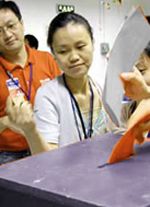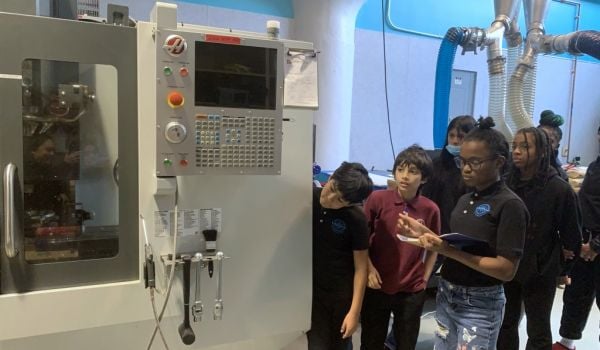There’s a lack of cultural impetus to vote in the Asian-American community. One example is Kevin Lee, a resident of Delaware County, who after living 17 years as a permanent resident, had no desire to apply for a citizenship until recently. Ambiguously defined, “permanent”, in Permanent Resident, has the same level effect as having little to no status as a U.S. resident.
“We’re classified as illegal aliens,” says Lee. “The term itself – ‘aliens’ – is ridiculous. How are we supposed to feel like a part of this country when we’re told we’re aliens? We’re always trying to prove we’re residents here with our green cards.” Kevin believes studying in the U.S. education system helped instill the idea that as a citizen, you are given much more than residency in the nation, but a freedom of choice. Lee used to be a car salesman but has decided to pursue a Master’s Degree in business.
In 2004, the U.S. Census reported that about 7 out of 10 Asians were U.S. citizens, whether by birth or naturalization. NBC’s 2008 Exit Polls of the recent democratic primaries reported about 1% of Asian Americans in Pennsylvania’s population voted. In comparison to California’s strong Asian American presence in the state (14% as stated in the 2006 U.S. Census), NBC reported a total of 8% who voted in the primaries. The 2004 U.S. Census reported that 37% of Asians living in the country are foreign-born and 31% of Asians could not register to vote. Pennsylvania alone reamed a percentage of 70% of foreign-born Asians.
The Asian-American community is composed of various ethnicities and subgroups, each pending from eclectic governments, political stratospheres, and by and large cultural stigmas. Many of them come from undemocratic nations, unaccustomed to American politics. But there are other cultural elements that Asian-Americans bring with them.
Reverend Paul Bang, a leader at Jubilee Presbyterian Church in Conshohocken, PA, believes all religions play a great role in Asian culture and Asian-American communities. Thus, one’s religious perspective will influence how they engage and act in society. “Pastors like me need to do their job to offer a more balanced approach to this issue instead of avoiding political talk altogether…people need to put pressure on schools so that they’re simply not indoctrinating students into adopting a liberal mindset. I believe that when people are exposed to the clear differences between conservatism and liberalism, they will become more interested in the real issues.”
Although the issues at stake in the current election affect all Americans, there are no real issues that are pointed at Asian Americans. Education is a major issue for Asian-American households as well as foreign policy. Speaking more about the political situation in Tibet, addressing North Korea’s government beyond its nuclear program, and generating more empathy for the democratic South Korea are issues that could spark an interest to Asian-Americans, hitting closer to home. A large handful of Asians own small businesses, a form of economy lost in modern politics. According to Rev. Bang, “issues like taxation, and government spending would matter the most.”
Additionally, candidates are often negligent in translating campaign materials. The Asian American Legal Defense and Education Fund reports a case in Philadelphia from the 2004 elections: In Philadelphia’s Chinatown, one limited English proficient voter went to two different poll sites and struggled for nearly three hours before she was finally able to vote by provisional ballot.
The Census Bureau projects that the Asian American population will grow to 37.6 million, or 9.3 percent of the population, by the year 2050. In the future, candidates will have to reach out to Asian American voters. Getting the Asian vote means understanding their culture first.









